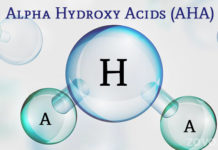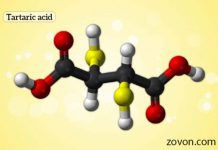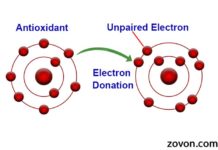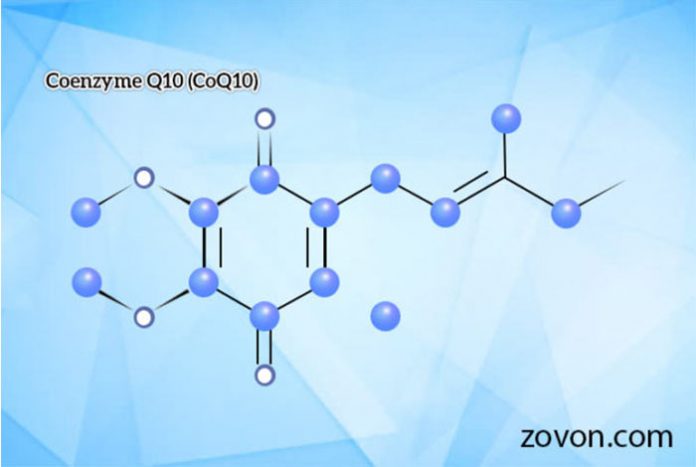
Coenzyme Q 10 is a naturally occurring fat-soluble antioxidant produced by our body. It is present in most of the living things. CoQ10 is quite similar to vitamins and is also called ‘Ubiquinone ‘as it is present ubiquitously in all cells in all organisms. Coenzyme Q10 is a vital component of the metabolic chemical reactions that generate energy within cells. Our body uses it to produce the energy required for its growth and maintenance.
It comes in two forms: ubiquinol and ubiquinone. Ubiquinol is the anti-oxidant form and ubiquinone is the oxidized form. Our body has the capacity to convert ubiquinone to ubiquinol. It is an essential component of the electron transport system that produces energy in the form of Adenosine Triphosphate (ATP). Ninety-five percent energy requirement of human body gets fulfilled by this process. That’s why the concentration of Q10 is recorded highest in heart, kidney, liver and brain; organs those require maximum energy in our body. Many researches concluded that topical application of CoQ10 has the beneficial effect of preventing premature aging or photoaging.
Q10 Group:
Other than ubiquinone, coenzyme Q10 is also popularly known as ubidecarenone, coenzyme Q, Q10, CoQ10, CoQ. Chemically, it is benzoquinone, where quinone group is abbreviated as Q. It functions in three states — fully oxidized (ubiquinone), semi-oxidized (ubisemiquinone) and reduced (ubiquinol).
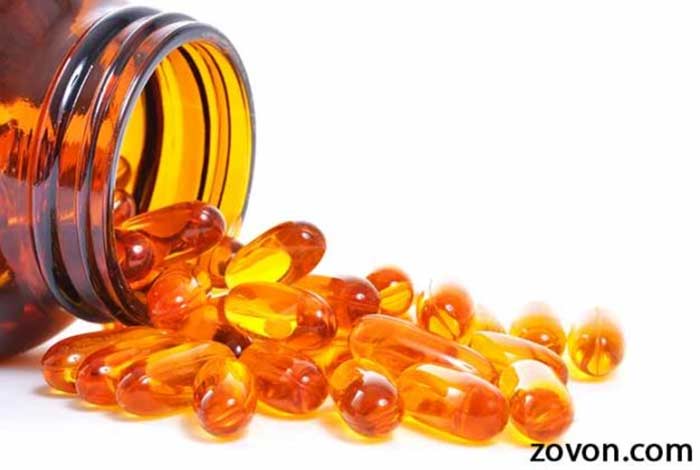
How does CoQ10 Work?
Q10 resembles vitamin and works in three oxidative states. It acts as a two-electron carrier by moving from quinone to quinol & vice versa and single electron carrier from semiquinone to either quinone or quinol. Apart from energy generation, especially ubiquinol effectively works as lipid antioxidant that protects DNA, lipid and protein structures from further modification caused by oxidation. Coenzyme Q10 decreases with the increase of activity and generation of reactive oxygen species (ROS), in diseased condition.
What are the sources of CoQ10?
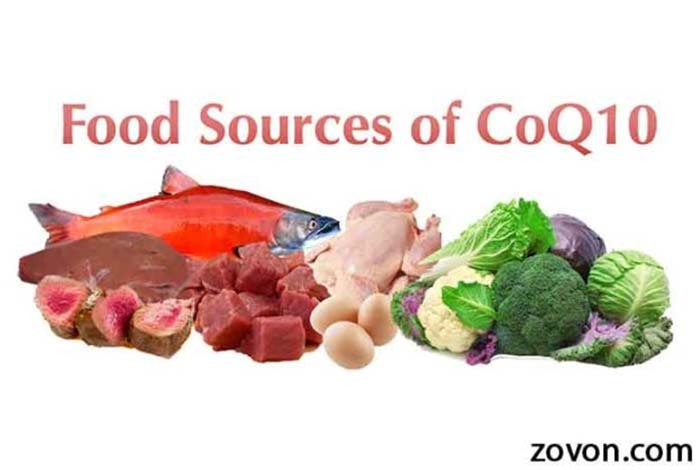
Green Sources:
- Green vegetables like spinach, lentils, parsley, Chinese cabbage, peas, cauliflower, broccoli etc. are good sources of Q10. Sweet potato, sweet pepper, carrot, garlic could also supply Q10 to the human body.
- Some beans and nuts such as soybeans, Adzuki beans, sesame seeds, walnut, hazelnut, pistachio contain moderate to the high-volume concentration of Q10.
- Avocado, blackcurrant, grape, orange, strawberry, apple, banana are essential fruits for the Q10 source.
- Soybean, sesame, rapeseed, cottonseed and corn oils contain a high concentration of CoQ10. Whereas, sunflower oil and safflower oil are poor sources of it.
Animal Sources:
- Sea fishes such as sardine, mackerel, cuttlefish, tuna etc. are high concentration sources of CoQ10. Trout, flatfish and eel are the low suppliers of it.
- Red meats are a warehouse of CoQ10. Pork, beef, ham and their heart, liver, muscle are the highest sources of Q10. Reindeer meat is also another good source of it. Frying the meat may cause the lower concentration of the coenzyme Q10.
- Chicken contains a moderate amount of Q10 and eggs contain a small amount of Q10.
Artificial source/supplements:
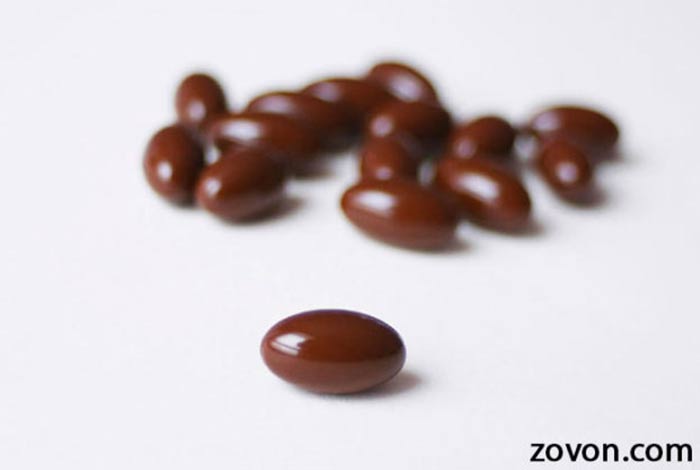
-
Apart from natural sources, tablets, powders, syrups are used to intake as dietary supplements as an artificial Q10 source. There’s a limit of consumption of these supplements; Q10 dosage for adults is minimum 90 gm and maximum 200 gm. It’s essential to consult with a doctor before starting Q10 with a child. Q10 dietary supplements are not regulated by Food and Drug Administration (FDA), U.S.A.
Why Coenzyme Q10 is essential/benefits of CoQ10:
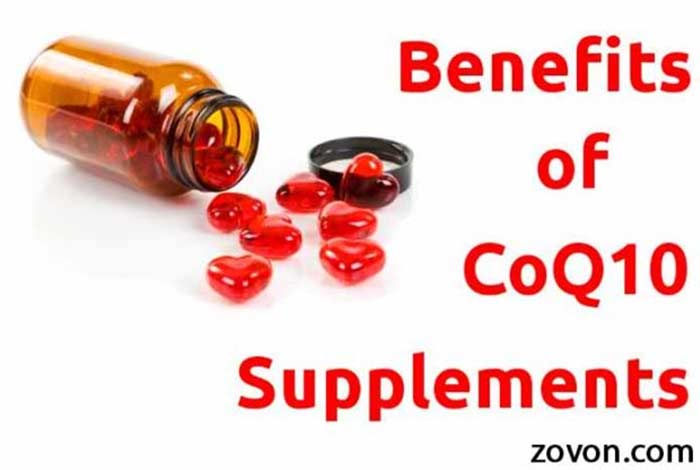
It is beneficial against several diseases as follows:
|
Heart disease |
Though Q10 cannot be a treatment for heart failure, but several studies reveal that consumption of Q10 improves the cardiovascular system even for a poor heart condition. It reduces the risk of major cardiac diseases and improves symptoms. Reports say, it enhances blood flow and protects blood vessels. |
|
Male infertility |
It is proven fact that Q10 consumption results improvement in sperm count for males. Men with sperm count lower than average resulted increased in sperm count after treating with Q10. The dose is certainly advisable by a doctor. |
|
Migraine headache |
Migraine is explained as a mitochondrial disorder. In a research with 32 patients, it has proven that Q10 is a good migraine preventive. According to the research, it works within 30 days since the beginning. |
|
Dental diseases |
Q10 deficiency can severely cause dental diseases. It protects teeth caused by free-radical damages. Regular intake of Q10 is preventive from periodontal diseases. |
|
Cancer |
This prevents breast cancer. It protects the heart from the side-effects of cancer treatments. It also reduces the risk of lung and brain cancer. |
|
Statin myopathy |
Q10 is very effective against muscle breakdown and thus can be used against statin myopathic treatment. |
|
Skincare |
Q10 helps in collagen and elastin generation that produce newer skin cells at a deeper level. This makes skin flexible and removes wrinkles. |
|
Huntington’s disease |
It is an inherited disorder results death of brain cells. It can’t cure the disease but able to moderately improve the condition. |
|
Parkinson’s disease |
Q10 is not the remedy for Parkinson’s disease but long-term intake of it could able to reduce the severity. This is still under research. |
CoQ10 deficiency:
Deficiency of Q10 results dysfunction in some important human organs such as heart, kidney, brain etc. the results are as follows:
- Heart-disease that weakens heart muscles.
- Kidney dysfunction called nephrotic syndrome.
- Increase of cholesterol in the blood.
- Edeme: An abnormal fluid build-up in abdominal cavities that result swelling.
- Wrinkled and rough skin
- Reduction of red blood cells and it results in anemia
- Weakening immunity system by a low count of white blood cells.
- Dysfunction in different body muscles
- Muscle contraction, muscle stiffness
- Abnormal eye movement and loss of vision caused by breakdown of optic nerves
- Abnormality in the inner ear resulting in loss of hearing
CoQ10 in dietary supplements: Essential or Fatal:
All the way CoQ10 has proved as beneficial for health. Though FDA, U.S.A doesn’t recommend CoQ10 supplements yet there’s a huge market as well as research field of it. The human body is able to produce adequate coenzyme Q10 to prevent deficiency. Maximum intake of 200 gm supplement could be safe for adults, whereas, more than 200 gm supplementary intake and their long-term and short-term result are under study. How it works for children remains a matter under research. This is certainly permissible under the condition to the practitioner.
FAQs: What people normally want to know about Coenzyme Q10 (CoQ10)?
1. Are there any side-effects from CoQ10? /Safety measures for Q10/Pros and Cons of Q10?
- High intake long-term practice of CoQ10 may result in mild insomnia. Regular consumption of CoQ10 and that too more 300 gm results elevations of liver enzymes. Other side-effects include skin rashes, nausea, abdominal pain, headache, fatigue etc.
- medicines for high cholesterol and medicines for lowering blood sugar might decrease the level of CoQ10 in the body. People who take medicines for diabetes and blood thickening must consult a doctor before taking CoQ10.
2. What are the symptoms of CoQ10 deficiency?
There is no such symptom of CoQ10 deficiency but results. Deficiency of CoQ10 may result in heart failure, high blood pressure and chest pain. High cholesterol, hair loss and dry mouth could be symptoms.
3. Can Q10 levels be tested?
Low levels of Q10 is quite usual among old age people. But it too could be lower for patients suffering from chronic diseases such as diabetes, cancer, muscular dystrophy, Parkinson’s disease, HIV/AIDS etc. this can be tested with res
4. Is there any special consideration related to CoQ10?
- How much it is effective for immune system to prevent HIV/AIDS is under research.
- It seems to improve muscular dystrophy and heart functioning but the level and effectiveness are still under study.
- Its relationship with Alzheimer’s disease and Parkinson’s disease is subjected to test.
5. What is a coenzyme-q10 supplement?
CoQ10 can be available as tablets, powders that synthesized in the human body to fulfill its deficiency. Deficiency may be caused either age or disease that reduce Q10 in the human body.
6. Is Q10 used for weight loss?
Q10 assists in energy production in human cells. Limited intake of the Q10 supplement may result in little fast metabolism in cells. Proper diet plan along with supplement advised by an expert could be effective for weight loss.

